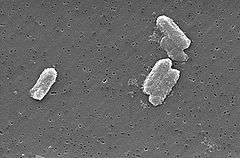Economic geology

Economic geology is concerned with earth materials that can be used for economic and/or industrial purposes. These materials include precious and base metals, nonmetallic minerals, construction-grade stone, petroleum minerals, coal, and water. The term commonly refers to metallic mineral deposits and mineral resources. The techniques employed by other earth science disciplines (such as geochemistry, mineralogy, geophysics, petrology and structural geology) might all be used to understand, describe, and exploit an ore deposit.
Economic geology is studied and practiced by geologists. Economic geology may be of interest to other professions such as engineers, environmental scientists, and conservationists because of the far-reaching impact that extractive industries have on society, the economy, and the environment.
Purpose of studies
The purpose of the study of economic geology is to gain understanding of the genesis and localization of ore deposits plus the minerals associated with ore deposits.[1] Though metals, minerals and other geologic commodities are non-renewable in human time frames, the impression of a fixed or limited stock paradigm of scarcity has always lead to human innovation resulting in a replacement commodity substituted for those commodities which become too expensive. Additionally the fixed stock of most mineral commodities is huge (e.g., copper within the earth's crust given current rates of consumption would last for more than 100 million years.[2] Nonetheless, economic geologists continue to successfully expand and define known mineral resources.
Mineral resources
Mineral resources are concentrations of minerals significant for current and future societal needs. Ore is classified as mineralization economically and technically feasible for extraction. Not all mineralization meets these criteria for various reasons. The specific categories of mineralization in an economic sense are:
- Mineral occurrences or prospects of geological interest but not necessarily economic interest
- Mineral resources include those potentially economically and technically feasible and those that are not
- Ore reserves, which must be economically and technically feasible to extract
Ore geology

Geologists are involved in the study of ore deposits, which includes the study of ore genesis and the processes within the Earth's crust that form and concentrate ore minerals into economically viable quantities.
Study of metallic ore deposits involves the use of structural geology, geochemistry, the study of metamorphism and its processes, as well as understanding metasomatism and other processes related to ore genesis.
Ore deposits are delineated by mineral exploration, which uses geochemical prospecting, drilling and resource estimation via geostatistics to quantify economic ore bodies. The ultimate aim of this process is mining.
Coal and petroleum geology
- See main articles Coal and Petroleum geology
The study of sedimentology is of prime importance to the delineation of economic reserves of petroleum and coal energy resources.
References
- U.S. Geological Survey Circular 831, Principles of a Resource/Reserve Classification for Minerals (PDF format)
- Dill, H.G., 2010. The “chessboard” classification scheme of mineral deposits: Mineralogy and geology from aluminum to zirconium. Earth-Science Reviews Volume 100, pp. 1–420, 2010
See also
- Important publications in economic geology
- Mineral economics
- Mineral resource classification
- Ore
- Ore genesis
- Coal